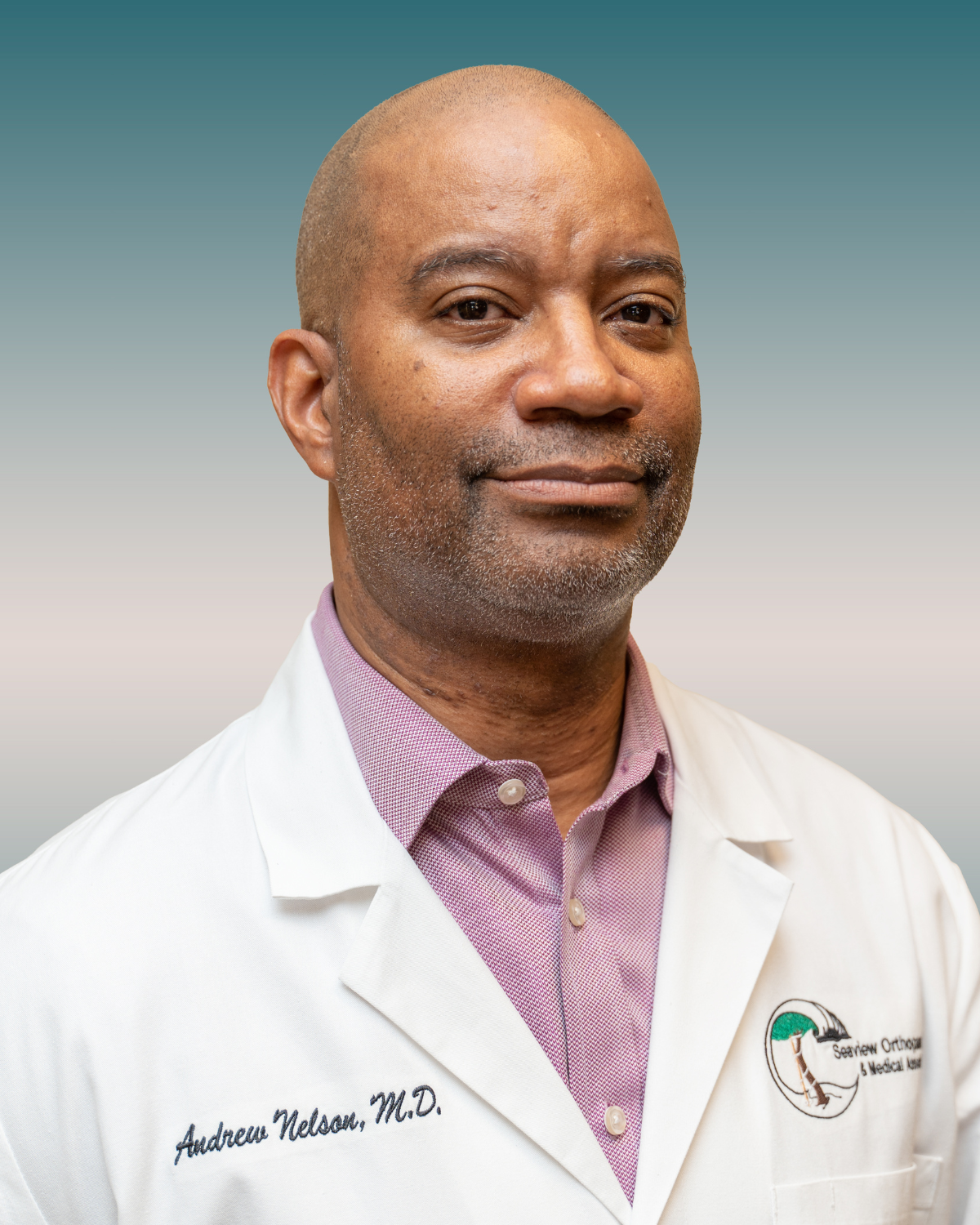Common Types of Shoulder Injuries
We may not give much thought to our shoulders, but in reality, they are some of the most key joints in our bodies. Sufficient strength and mobility in the shoulders is highly important day-to-day – think about carrying grocery bags, picking up a child, playing any kind of sport, and many more activities. All of these involve your shoulders, and an acute or chronic shoulder condition can put you out of commission for them.
Meet Our Shoulder Specialists
At Seaview Orthopaedic, we’re among New Jersey’s leading providers of surgery and other orthopedic treatments for the shoulders. You can contact us any time to learn more about our shoulder injury treatment options, book an appointment with us, or learn more about the most common medical complaints affecting the shoulders below.
Orthopedic Shoulder Surgeons
Non-surgical Orthopedic Shoulder Specialists
Acute Shoulder Problems
An accident, a wrong physical move, an overextension while playing a game, or other incidents can take seconds or less, but they can have a negative impact on the shoulder long-term. Acute problems with the shoulder typically result from a traumatic injury, and while the majority of them can heal to at least some degree on their own, some people need surgery to regain their full strength and range of motion.
Shoulder Sprains: Symptoms and Causes
A sprain is one of the most often-seen types of soft tissue injury, particularly in athletes or other active people. Specifically, a sprain refers to a torn ligament, as opposed to a strain, which is the same type of injury to a muscle or tendon.
Some ways that athletes in particular can strain their shoulders include by overextending on a softball pitch or with a hard hit and awkward fall on the football field. Sprains lead to swelling, bruising, lessened ability to bear weight, and overall throbbing, dull pain. The most severe sprains cause a complete rupture of the ligament, which tends to require surgery.
Shoulder Dislocations: Symptoms and Causes
A dislocation – less commonly known as a luxation – is the abnormal movement of bones within a joint causing them to become separate. Dislocations are caused by physical trauma in a particular area and shoulder dislocation is often associated with car accidents.
A dislocation can be “popped” back into place, as seen in action films and TV shows, but only a trained professional should do this – and long-term, they will still require healing for the injuries to tissue that occurred when the bones shifted.
Rotator Cuff Tears: Symptoms and Causes
The rotator cuff consists of four muscles and their tendons surrounding the shoulder joint – these stabilize the bones and allow us to put force behind the motion of our shoulders. Naturally, in addition to pain, torn rotator cuffs (these tears can involve both muscles and tendons) lead to instability and weakness.
Repetitive motion puts the rotator cuff at risk, particularly overhead arm motion – quarterbacks in gridiron football, swimmers competing in the backstroke and freestyle, and boxers (especially when overcommitting to a missed uppercut) often suffer this injury.
Shoulder Fractures: Symptoms and Causes
The scapula and humerus – the major bones of the shoulder – are particularly strong and tough, but they are still bones, and they, and particularly the smaller clavicle, or collarbone, are still at risk of fractures. Any sufficient impact can result in a shoulder fracture, which can have complications beyond pain and loss of use of the joint because of how near this joint is to the pleural space of the lungs.
Chronic Shoulder Problems
Chronic issues involving the shoulder can arise from an identifiable underlying cause, or they can be idiopathic, simply appearing with no original explanation. Many of these conditions are inflammatory in nature, and the resultant pain and other symptoms may need various kinds of treatment to restore your quality of life.
Shoulder Tendinitis: Symptoms and Causes
Tendinitis refers to tendon disorders that cause swelling, and as a result, also cause pain and functional impairment. Tendinitis can come from a variety of medical conditions: Repetitive activity or injury, but also arthritis, infection, gout, and others.
People with shoulder tendinitis may experience a burning sensation that can be felt in the shoulder or across the upper back and may see bumps around the joint. Shoulder tendinitis treatment options focus on reducing the inflammation.
Shoulder Bursitis: Symptoms and Causes
The bursae are small sacs filled with synovial fluid (a viscous secretion that comes from blood plasma), which surround our joints to cushion them. When the bursae become irritated from friction or infection, their lining can get inflamed, causing them to balloon in size – this is known as bursitis, causing a lump to arise that’s a clear sign that something is wrong. Because the bursae facilitate joint movement, bursitis makes motion much more painful and difficult.
Shoulder Arthritis: Symptoms and Causes
There are many types of arthritis – osteoarthritis and rheumatoid arthritis being among the most common – but all of them cause joint pain, stiffness, and swelling. Shoulder arthritis can severely impact the use of the entire affected arm.
Frozen Shoulder: Symptoms and Causes
Adhesive capsulitis of the shoulder – popularly and evocatively called frozen shoulder – is an idiopathic condition with unknown cause. It most famously leads to near-complete or total shoulder immobility on one side, starting with a painful “freezing” phase, progressing to a painless but non-mobile “frozen” phase, and gradually resolving in a “thaw”.
Unlike other conditions, both active and passive ranges of motion are affected – in other words, not only can the patient not move their shoulder voluntarily, the joint also will not move if someone else places their hands on it and tries to shift it. This condition is marked by adhesions – abnormal connections between tissue – around the shoulder joint, lessened amounts of synovial fluid, and dense accumulations of collagen. For some patients, surgery can be effective in quickly restoring their ability to use a formerly frozen shoulder.
How is Shoulder Pain Diagnosed?
Physicians evaluate a damaged shoulder with imaging (such as an X-ray), observation of any physical signs like inflammation or deformity, and confirming with the patient the details of any injuries they may have suffered.
When Should You Go to the Doctor for a Shoulder Injury?
Minor shoulder injuries can certainly heal on their own, but you should see a physician if your shoulder pain doesn’t lessen within days or weeks or it gets worse over time, if you suffered a traumatic injury or blow such as an automobile accident or a sports injury resulting you being unable to play for the rest of that game or practice, or if you have symptoms of the chronic conditions noted above.
Schedule a Shoulder Pain Treatment Appointment at Our NJ Shoulder Injury Clinics
Seaview Orthopaedic leads the way in effective, forward-thinking treatment of all types of shoulder conditions so that our clients – ordinary people in New Jersey – can get rid of their pain and immobility and get back to their lives. We have locations in Barnegat, Brick, Freehold, Holmdel, Monroe, and Ocean, and our expert physicians can help you with your shoulder pain – contact us or schedule an appointment today.








